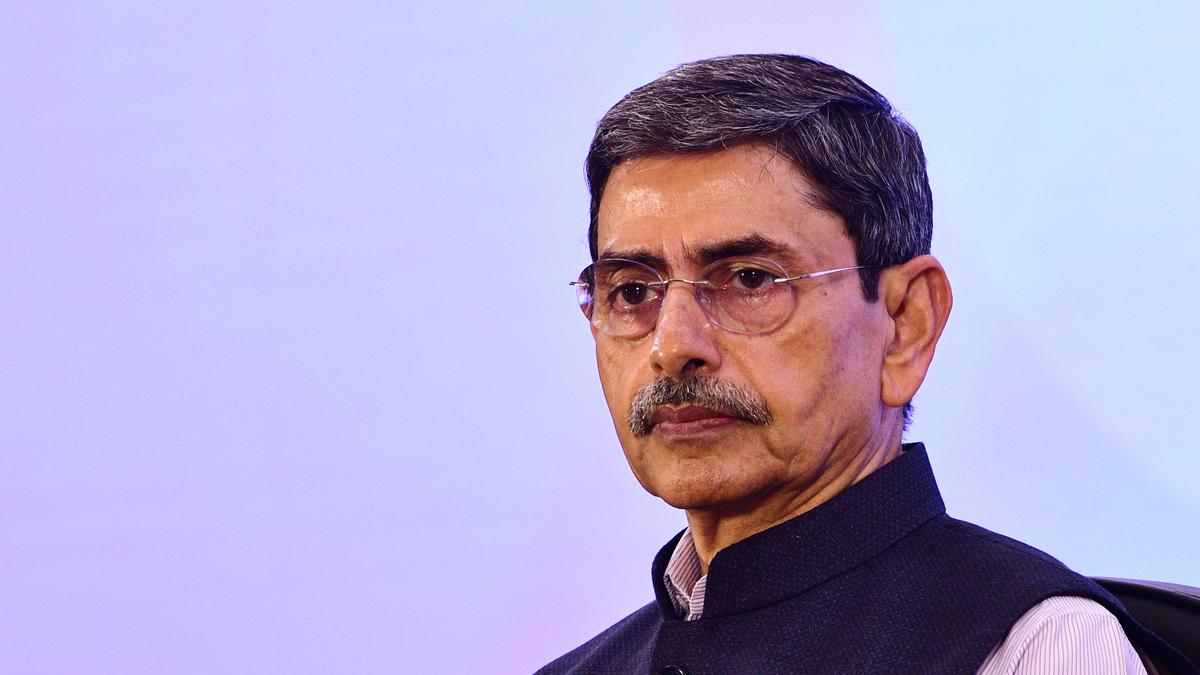Tamil Nadu Governor R. N. Ravi. File
| Photo Credit: S. Siva Saravanan
A public interest litigation (PIL) petition has been filed in the Madras High Court to declare as null and void the 12 amendment Acts passed by the Tamil Nadu legislature to make the State government, instead of the Governor, the appointing authority for Vice-Chancellors of various State-run universities.
A summer vacation Bench of Justices G.R. Swaminathan and V. Lakshminarayanan admitted the main writ petition on Wednesday (May 14, 2025) as it challenges the validity of the laws and ordered notice, returnable by May 21, to the State government on the petitioner’s plea for grant of interim orders.

During the course of arguments, Advocate General P.S. Raman said, a week would be too short a time for the State government to file a counter affidavit to the interim stay petitions. He said, at least three government departments would have to vet the counter affidavit before it could be filed in the court.
On his part, Senior Counsel P. Wilson, representing the Higher Education department, said, a petition with a similar prayer was pending in the Supreme Court. He also stated that Attorney General R. Venkataramani too had attacked the 12 laws during the hearing of cases filed by the Tamil Nadu government against the Governor for delaying grant of assent.
The Supreme Court had considered all those submissions and then passed a detailed judgment running for over 400 pages in which the Acts were deemed to have been granted assent. Therefore, the petitioner could not be allowed to reagitate the issue before the High Court, Mr. Wilson said.

Justice Swaminathan asked the Attorney General as well as the senior counsel to make their submissions next week and directed the Registry to list the matters again on May 21 for considering petitioner’s plea to stay the operation of the 12 amendment Acts until the disposal of his PIL petition.
K. Venkatachalapathy, a lawyer based in Tirunelveli district, had filed the PIL petition through his counsel V.R. Shanmuganathan. The petitioner claimed that the amendments had been made to the Acts applicable to medical, law, veterinary sciences and many other State universities.
He contended that the transfer of the power to appoint Vice-Chancellors from the Governor, in his/her capacity as the Chancellor, to the State government would violate the University Grants Commission Regulations on Minimum Qualifications for Appointment of Teachers and Other Academic Staff in Universities and Colleges, 2018.
The litigant said, Regulation 7.3 of the 2018 UGC Regulations mandate that the Vice-Chancellors must be appointed by the Chancellor from a panel recommended by a search panel. In such circumstances, how could the State laws introduce a procedure contrary to the UGC Regulations, he asked.
Stating that UGC was a statutory body established under a Central enactment to regulate and supervise the functioning of universities across the country, the petitioner said, the amendments carried out by the State legislature were actually repugnant to the central law and therefore, they must be declared null and void.
“Therefore, another issue that arises would be whether the word ‘Government’ in the impugned amendments would mean the Tamil Nadu Legislative Assembly or the Council of Ministers or the Governor who is the executive head of the State. There is no clarity on this aspect in the impugned amendments,” the petitioner said.

He also said: “In the absence of clarity, there is every likelihood of lack of transparency or malpractice or element of bias or favouritism in the appointments.” The petitioner also highlighted that ‘education’ was in the concurrent list and that the Centre had all powers to pass laws for maintenance of standards in higher education.
“Therefore, as a subordinate legislation, the 2018 UGC Regulations become a part of the UGC Act. In case of any conflict between a State legislation and a Central legislation, the Central legislation shall prevail by applying the rule/principle of repugnancy as enunciated in Article 254 of the Constitution,” the petitioner contended.
It was also brought to the notice of the Bench that the recent Supreme Court verdict holding that the amendment Acts would be deemed to have been assented to by the Governor would not preclude the present petitioner from challenging their validity on the ground of repugnancy.
Published – May 14, 2025 06:25 pm IST
#Plea #Madras #High #Court #seeking #stay #laws #T.N #Governors #power #appoint #ViceChancellors
madras high court news,Tamilnadu Governor’s power to appoint Vice-Chancellors ,tamil nadu governor news,governor rn ravi
latest news today, news today, breaking news, latest news today, english news, internet news, top news, oxbig, oxbig news, oxbig news network, oxbig news today, news by oxbig, oxbig media, oxbig network, oxbig news media
HINDI NEWS
News Source


